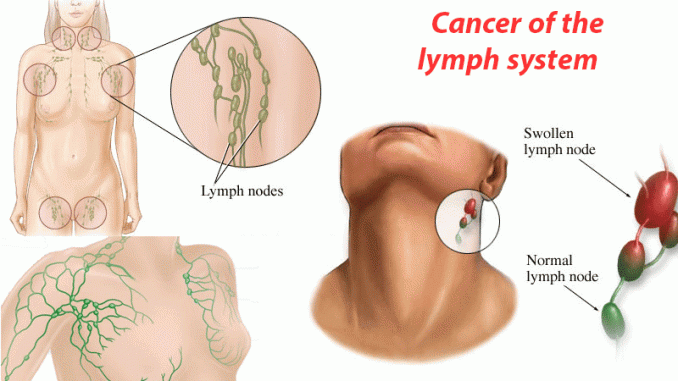Symptoms If Cancer Has Spread To The Lymph Nodes
Lymph nodes are part of a system of tubes and glands in the body that filters body fluids and fights infection.
The most common symptom if cancer has spread to the lymph nodes is that they feel hard or swollen. You might have any of the following symptoms if your cancer has spread to the lymph nodes:
- a lump or swelling under your armpit
- swelling in your arm or hand
- a lump or swelling in your breast bone or collar bone area
One of the first places breast cancer can spread to is the lymph nodes under the arm on the same side as the breast cancer. This is not a secondary cancer.
Inflammatory Breast Cancer Symptoms
Unlike other breast cancers, inflammatory breast cancer rarely causes breast lumps and may not appear on a mammogram. Inflammatory breast cancer symptoms include:
- Red, swollen, itchy breast that is tender to the touch
- The surface of the breast may take on a ridged or pitted appearance, similar to an orange peel
- Heaviness, burning, or aching in one breast
- One breast is visibly larger than the other
- Inverted nipple
- No mass is felt with a breast self-exam
- Swollen lymph nodes under the arm and/or above the collarbone
- Symptoms unresolved after a course of antibiotics
Unlike other breast cancers, inflammatory breast cancer usually does not cause a distinct lump in the breast. Therefore, a breast self-exam, clinical breast exam, or even a mammogram may not detect inflammatory breast cancer. Ultrasounds may also miss inflammatory breast cancer. However, the changes to the surface of the breast caused by inflammatory breast cancer can be seen with the naked eye.
Symptoms of inflammatory breast cancer can develop rapidly, and the disease can progress quickly. Any sudden changes in the texture or appearance of the breast should be reported to your doctor immediately.
For women who are pregnant or breast-feeding, redness, swelling, itchiness and soreness are often signs of a breast infection such as mastitis, which is treatable with antibiotics. If you are not pregnant or nursing and you develop these symptoms, your doctor should test for inflammatory breast cancer.
Other Lung Cancer Symptoms
The presence of additional symptoms may increase the likelihood that a chronic cough is due to lung cancer.
Studies have looked at people with lung cancer in order to determine what symptoms were present in the year prior to their diagnosis. This research found the following to be independently predictive of lung cancer.
You May Like: Baking Soda For Breast Cancer
Easing Worries About Radiation Therapy
Its normal to worry about possible side effects of radiation therapy.
Talk with your health care provider about your concerns.
Your provider may be able to suggest a hospital social worker, patient navigator, psychologist or support group to help ease anxiety related to radiation therapy .
With any standard radiation therapy, you will not be radioactive when you leave the radiation treatment center. You will not pose any radiation risk to your family or your pets.
Learn more about support groups.
Preventing Breast Cancer In Cats

Cats who are spayed early in life are significantly less likely to develop breast cancer.
It is possible to hugely reduce the risk of breast cancer in cats. Female cats spayed before 2 years of age have a lower risk of mammary cancer.
And the earlier they are spayed, the lower their risk. Cats spayed before 6 months of age are 91% less likely to get malignant mammary adenocarcinoma than entire cats.
Don’t Miss: Did Anne Hathaway Have Breast Cancer
Treatment For Physical Symptoms
Several medications can help relieve pain. The American Cancer Society urge that a person should not have to endure pain in the final months and days of life.
Many people find relief with opioid medications, but these can cause side effects such as fatigue and constipation. A person may use opioids in combination with other pain relief medications, such as acetaminophen or ibuprofen.
Other drugs, such as antidepressants and antiseizure medications, can also treat certain types of pain.
Doctors can also prescribe medications for nausea and vomiting. Some drugs for treating nausea can make a person drowsy. However, these drugs may help people eat and drink more or simply make it easier for them to function and interact with other people.
Diarrhea Or Changes In Bathroom Habits
Symptoms of cancer in dogs also include diarrhea or general changes in bowel movements. Occasional diarrhea is probably not a concern or a sign of cancer in dogs. If the diarrhea worsens or persists, however, you need to get your dog to the vet.
You may also notice that your dog is constantly asking to go outside to go to the bathroom. Or they might have a hard time urinating or making a bowel movement. Furthermore, they may be vomiting, or you may notice blood in their urine or stool. All of these should be checked out. These symptoms as well as incontinence may be signs of bladder cancer in dogs.
You May Like: Can Getting Hit In Your Breast Cause Cancer
Characteristics Of Chronic Cough
At least half of people diagnosed with lung cancer have a chronic cough at the time of diagnosis. A chronic cough is defined as a cough that lasts for at least eight consecutive weeks. Many people say that their cough “just won’t go away.”
This type of cough may:
- Be dry or productive, the latter meaning you cough up mucus
- Occur at any time of day
- Interfere with sleep, resulting in daytime tiredness
A lung cancer cough may seem similar to a cough previously experienced due to something else, like allergies. Because of this, some may not initially be all that concerned about it.
Situations that increase one’s risk of developing a chronic cough include, but are not limited to:
Less Common Treatment Effects
Radiation therapy. In some cases it can cause pulmonary fibrosis, which scars your lung tissue. You might notice:
- Dry cough
- Chest pain
Continued
These symptoms typically show up 2-3 months after your treatment ends. It may first look like pneumonia, but antibiotics wont help. Your doctor may prescribe steroids to treat your symptoms.
Chemotherapy. Certain chemo drugs can lead to heart problems, especially if you had existing heart problems. Other possible side effects of chemo include:
- Hot flashes and irregular or missed periods
- Foggy thinking
Also Check: Can Stage 3 Breast Cancer Be Cured
Where Can Breast Cancer Spread
The most common places for breast cancer to spread to are the lymph nodes, bone, liver, lungs and brain. The symptoms you may experience will depend on where in the body the cancer has spread to. You might not have all of the symptoms mentioned here.
Remember other conditions can cause these symptoms. They don’t necessarily mean that you have cancer that has spread. But if you have symptoms that you are worried about, discuss them with your GP, cancer specialist, or breast care nurse so that you can be checked.
What Is Metastatic Breast Cancer
Metastatic Breast Cancer is breast cancer that has left the breast and local area around the breast and has been found in other parts of the body. Although MBC is not curable, with current advances in treatment, it is now often considered a chronic diseaseone that may be treated on an ongoing basis and lived with for years. MBC is also called stage IV breast cancer or mets. It is also often referred to as advanced breast cancer, although they are not the same. MBC is advanced breast cancer, but advanced breast cancer can also refer to some stage III cancers that are not MBC.
Don’t Miss: Can Stage 1 Breast Cancer Be Cured
When Back Pain Is A Symptom Of Lung Cancer
It is not uncommon for people to experience back pain with lung cancer or even to have back pain as their first symptom. While it may seem an unusual associationlinking the back to the lungsthere are defining features that are as telling as they are unique. Chief among them are the location and types of pain experienced, which may be quite different from your typical, chronic backache.
All told, around 25% of people with lung cancer will report back pain as a symptom at some point in their disease.
Verywell / Hugo Lin
Is A Persistent Cough A Sign Of Cancer

Medically reviewed by Raja-Elie E. Abdulnour, MD
A cough can potentially be a symptom of a health concern, but in the overwhelming majority of cases that include a cough, the cause is unrelated to cancer. However, when a cough becomes chronicin other words, when it lasts for weeks or months, or produces bloodthere may be a more serious underlying problem.
A leading cause of a chronic cough is smoking. Smokers can develop a smokers cough, caused by chemical irritation and inflammation in the lung from tobacco products leading to chronic bronchitis, one form of COPD. These same chemical irritants can lead to other serious lung conditions, such as pneumonia and lung cancer. In other words, although chronic cough in a smoker is not necessarily a sign that someone has lung cancer, it is a signal that cigarettes or other tobacco products are harming the lungs, which is a cause for concern and should prompt a visit to the doctor.
The link between smoking and lung cancer is so strong that all cigarette smokers over the age of 55 with a 30 pack-year smoking history are recommended to receive annual lung cancer screening, which includes a chest CT.
For most people, chronic cough and hemoptysis is likely not a reason to believe one has cancer. However, if the issue is prolonged or becomes acute, a doctor can help find the cause of the cough and treat the variety of illnesses that may cause it.
Recommended Reading: Anne Hathaway Breast Cancer
How To Reduce The Risk Of Metastasis
After someone has received initial treatment, breast cancer can lay dormant in the body before spreading to other areas. People who have received treatment in the past should monitor themselves for any signs or symptoms that could indicate cancer recurrence.
While there is no single way to avoid developing metastatic breast cancer entirely, there are some lifestyle changes that can help reduce a persons risk.
People may reduce the risk of metastases with the following factors:
- having regular health screenings
Pain As A Side Effect Of Cancer
When the cancer itself causes pain, its often due to a tumor. As a tumor grows, it may put pressure on the surrounding area. Tumors that press on nerves, bones or organs may result in pain.
Two common types of pain caused by cancerous tumors are:
- Spinal cord compression pain. This condition occurs when tumors grow near the spine and constrain spinal cord nerves, leading to pain in the back or neck that is often intense. Other symptoms may include pain, numbness or weakness in an arm or leg. Sudden movements such as coughing or sneezing may aggravate this type of pain. Spinal cord compression is a medical emergency and requires immediate treatment to shrink the tumoroften using radiation, steroids, surgery, or a combination of these therapies. Without treatment, theres a risk of serious complications, including paralysis.
- Bone pain. When cancer develops in the bones or spreads to them, it weakens them and damages nearby nerves, causing pain. This type of pain may be alleviated with pain medications, treatments to fight the cancer, and drugs or therapies to strengthen the affected bones.
Don’t Miss: Baking Soda And Honey For Cancer
Poor Appetite And Weight Loss
Sometimes people with secondary breast cancer cant eat as much as usual. This means they have difficulty maintaining their weight as well as providing the body with energy. Low energy levels can affect mobility and might make it harder to manage any symptoms such as breathlessness.
Poor appetite can be due to the effects of the cancer, treatment or anxiety. A small number of people may have difficulty swallowing.
You might find it easier to eat little and often instead of having set meals. If you still feel you arent eating enough, are losing weight or have no interest in food, talk to your doctor or specialist nurse about dietary supplements or ask to speak to a dietitian for specialist advice.
In some circumstances you may be prescribed medication to help stimulate your appetite.
How Long Do Side Effects Last
Remember that the type of radiation side effects you might have depends on the prescribed dose and schedule. Most side effects go away within a few months of ending treatment. Some side effects may continue after treatment ends because it takes time for the healthy cells to recover from radiation.
Side effects might limit your ability to do some things. What you can do will depend on how you feel. Some patients are able to go to work or enjoy leisure activities while they get radiation therapy. Others find they need more rest than usual and cant do as much. If you have side effects that are bothersome and affecting your daily activities or health, the doctor may stop your treatments for a while, change the schedule, or change the type of treatment youre getting. Tell your cancer care team about any side affects you notice so they can help you with them.
Also Check: Did Anne Hathaway Have Breast Cancer
Cancer Signals In Both Men And Women
Appetite loss. Many conditions, from depression to the flu, can make you feel less hungry. Cancer can have this effect by changing your metabolism, the way your body turns food into energy.
Stomach, pancreatic, colon, and ovarian cancers also can put pressure on your stomach and make you feel too full to eat.
Blood in the stool. Cancers can bleed, but so can a bunch of other things, like ulcers, hemorrhoids, infections, or a sore. When you see red in your poop, the blood is often from somewhere in your GI tract, meaning your esophagus, stomach, or intestines.
One way to tell where the blood is coming from is by how light or dark it looks. Bright red could mean the bleeding is in your rectum or the end of your intestines. A darker color means it may be from higher up, like a stomach ulcer.
No matter what the cause, blood in your stool needs to be checked out. You may need a colonoscopy or other tests to find the problem.
Blood in the urine. When it shows up in your pee, blood could be a warning sign of a problem in your urinary tract. Kidney or bladder cancer can cause this symptom, but it could also be due to an infection, kidney stones, or kidney disease.
Cough that doesn’t go away. A cold or the flu can make you hack away, but it’s also a potential symptom of lung cancer, along with red flags like chest pain, weight loss, hoarseness, fatigue, and shortness of breath. See your doctor if you can’t seem to shake it, especially if you’re a smoker.
Continued
Emotional And Spiritual Care
End-of-life care also includes emotional, mental, and spiritual therapy. A personâs healthcare team may include social workers, counselors, mental health professionals, and religious or spiritual advisors.
According to the Anxiety and Depression Association of America, up to 40 percent of people with cancer experience serious mental distress. This may include anxiety, depression, panic attacks, and post-traumatic stress disorder .
Medications, therapy, religious or spiritual rituals, and support groups can help a person cope with mental health issues and stress during this difficult time.
Caregivers may also need help with stress, anxiety, and depression. The palliative care team can usually also provide support and advice to caregivers for their emotional needs.
The Breast Cancer Healthline app provides people with access to an online breast cancer community, where users can connect with others and gain advice and support through group discussions.
Recommended Reading: Did Anne Hathaway Have Breast Cancer
Radiation Therapy And Risk Of A Second Cancer
In rare cases, radiation therapy to the breast can cause a second cancer.
The most common cancers linked to radiation therapy are sarcomas . For women who are long-term smokers, radiation therapy may also increase the risk of lung cancer .
The risk of a second cancer is small. If your radiation oncologist recommends radiation therapy, the benefits of radiation therapy outweigh this risk.
|
SUSAN G. KOMEN® SUPPORT RESOURCES |
|
Should Men At Higher Risk For Breast Cancer Get Screening Mammograms

Men have less breast tissue than women and fewer than 1 percent of men develop breast cancer, so national cancer screening guidelines do not recommend regular screening mammograms for men. However, if a doctor suspects breast cancer, a diagnostic mammogram may be needed to look for malignant tumors.
However, when a man is determined to be at higher risk for breast cancer, it is recommended that he have an annual clinical breast exam to check for breast changes that could indicate breast cancer.
Recommended Reading: Is Stage Two Breast Cancer Curable
Don’t Miss: What Are The Chances Of Getting Breast Cancer Twice